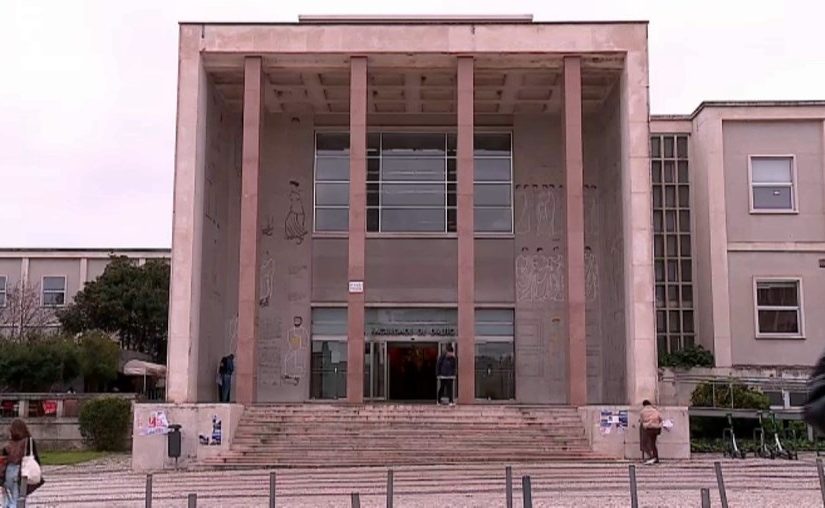Portugal win Nations League title with shootout triumph over Spain
Portugal: University students from Portuguese African countries triple in five years

FFILE - For illustration purposes only. [File photo: CMTV]
The number of students from Portuguese-speaking African countries in higher education in Portugal has almost tripled in five years, but many face difficulties and there are high dropout levels, warns a professor from the New University of Lisbon.
Miguel Chaves, coordinator of the Sociology department of the Faculty of Social and Human Sciences at the New University of Lisbon, is conducting a survey on the students enrolled in Portuguese higher education from Portuguese-speaking African countries (PALOP) and how they are received in the system.
In an interview to Lusa, the academic said that in 2017/18 teachers began to notice an increase in the number of PALOP students arriving in higher education and that many of these students had difficulties communicating in Portuguese.
The teachers realised that the increase in the number of African students was reflected by a substantial growth in the numbers from Guinea-Bissau, which explains the difficulties in the Portuguese language, as the people from Guinea-Bissau, in general, use very little Portuguese to communicate, usually mastering two languages, Creole and one of the native languages.
Figures made available to Lusa by the ministry of science, technology and higher education (MCTES), confirm the teachers’ findings: while the number of students from PALOP countries increased 170% in five years, from 7,355 to almost 19,993, the number from Guinea-Bissau has increased more than tenfold, from 603 to 6,470.
While in 2016/17 those from Guinea-Bissau were the least in numbers among PALOP students, last academic year they were already the most.
“It was a big change and a change that caught us completely by surprise, and for which no response has been given so far,” warned Miguel Chaves, stressing that the students’ communication difficulties are reflected in a “big problem”, namely in terms of academic success.
The academic recalled that this change came to add to other problems that PALOP students face since they began arriving, in the 1980s, under cooperation agreements between Portugal and its former colonies, many of which have remained since then, with only slight improvements.
He exemplified with the bureaucratic difficulties in obtaining visas, which delay the arrival of students for months or even a whole school year.
This leads to academic difficulties, but also financial, because after the enrolment, fees begin to be charged, and the students “arrive with a very considerable debt to the establishments”.
Another problem, he warned, is that many students do not receive scholarships, they come by their own means, so that they often have to start working, normally in jobs with no fixed timetable, and which do not allow them to exercise their rights as student-workers.
“Faced with a situation where they already have so many ‘handicaps’, in terms of language and lack of financial support, they still have to start working and start working intensely,” said Chaves.
Complications in accessing public services, namely the national health service, and difficulties in cultural adaptation – studies indicate that African students consider the Portuguese to be cold and distant – are added to racist prejudices that exist in Portuguese society and are also reflected in academia.
“Experiences of a certain discrimination, of a certain exclusion occur, for example, when working groups are formed” and Portuguese students tend not to accept Africans, because they believe that they do not give their due contribution to group work, exemplified the lecturer, considering this to be “discrimination and a form of indifference”.
All these problems have an effect that is “absolutely dramatic”: “The failure in the curricular units in the subjects that they are attending is massive and therefore the possibility of transition from one year to the next is also very low”, he lamented.
Lusa asked the MCTES for data on failure and dropout of students from PALOP countries, without any response, but Miguel Chaves cited official figures that attest to the dropout levels of these students: Of the Guinea-Bissau and Cabo Verde students enrolled in degree courses for the first time in 19/20, over 50% were no longer enrolled in higher education in 20/21.
In the case of Guinea-Bissau students, the dropout rate was 55%, noted the sociology professor, estimating, without concrete data, that the vast majority of those who remained in higher education “most likely had not passed the year and continued to have negative grades in most of the curricular units they were taking.
Lusa requested statements from the MCTES but did not receive a timely response.












Leave a Reply
Be the First to Comment!
You must be logged in to post a comment.
You must be logged in to post a comment.